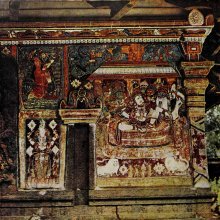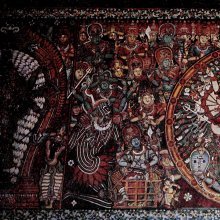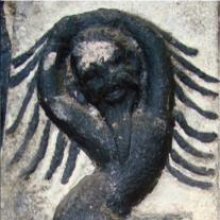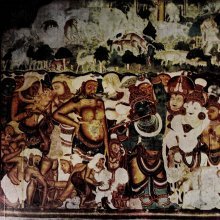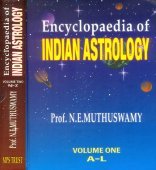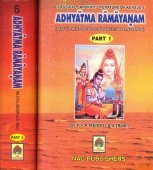Kerala, Keralā: 24 definitions
Introduction:
Kerala means something in Buddhism, Pali, Hinduism, Sanskrit, Jainism, Prakrit, the history of ancient India, Hindi. If you want to know the exact meaning, history, etymology or English translation of this term then check out the descriptions on this page. Add your comment or reference to a book if you want to contribute to this summary article.
Alternative spellings of this word include Keral.
Images (photo gallery)
In Hinduism
Purana and Itihasa (epic history)
Source: Google Books: Cultural History from the Vāyu PurānaKerala (केरल):—Kerala was one of the four sons of king Janāpīḍa of Turvasu line. His janapada was known as Kerala.
Source: archive.org: Puranic EncyclopediaKerala (केरल).—General information A small country lying in the south-west corner of India. From the Purāṇas it could be understood that this country lying to the south of Gokarṇa upto Cape Comorin and to the west of Western Ghats had a very ancient history and civilization of its own. (See full article at Story of Kerala from the Puranic encyclopaedia by Vettam Mani)
Source: Cologne Digital Sanskrit Dictionaries: The Purana Index1a) Kerala (केरल).—A son of Āṇḍira, after whom came the Keraladeśa.*
- * Brahmāṇḍa-purāṇa III. 74. 6; Matsya-purāṇa 48. 5.
1b) One of the four sons of Janāpiḍa; with him kingdom of Kerala came into being.*
- * Vāyu-purāṇa 99. 6.
1c) (c)—of the Dakṣiṇāpatha;1 visited by Balarāma; king of, went to Syamantapañcaka for solar eclipse;2 people of, enlisted by Jarāsandha against the Yadus.3
- 1) Brahmāṇḍa-purāṇa II. 16. 56; Matsya-purāṇa 114. 46; Vāyu-purāṇa 45. 124; 47. 52.
- 2) Bhāgavata-purāṇa X. 79. 19; 82. 13.
- 3) Ib. X. [50 (v) 2].
1d) Pravara sages.*
- * Matsya-purāṇa 199. 17.
Kerala (केरल) is a name mentioned in the Mahābhārata (cf. II.28.48, VI.10.57) and represents one of the many proper names used for people and places. Note: The Mahābhārata (mentioning Kerala) is a Sanskrit epic poem consisting of 100,000 ślokas (metrical verses) and is over 2000 years old.

The Purana (पुराण, purāṇas) refers to Sanskrit literature preserving ancient India’s vast cultural history, including historical legends, religious ceremonies, various arts and sciences. The eighteen mahapuranas total over 400,000 shlokas (metrical couplets) and date to at least several centuries BCE.
Natyashastra (theatrics and dramaturgy)
Source: Wisdom Library: Nāṭya-śāstra1) Kerala (केरल) is the Sanskrit name of one of Bharata’s sons, mentioned in the Nāṭyaśāstra 1.26-33. His name can also be spelled as Sukerala. After Brahmā created the Nāṭyaveda (nāṭyaśāstra), he ordered Bharata to teach the science to his (one hundred) sons. Bharata thus learned the Nāṭyaveda from Brahmā, and then made his sons study and learn its proper application. After their study, Bharata assigned his sons (eg., Kerala) various roles suitable to them.
2) Keralā (केरला) is the name of an Apsara created for the sake of a type of dramatic perfomance. Acording to the Nāṭyaśāstra 1.46-51, after Brahmā asked Bharata for materials necessary for the Graceful Style (kaiśikī: a type of performance, or prayoga), Bharata answered “This Style cannot be practised properly by men except with the help of women”. Therefore, Brahmā created with his mind several apsaras (celestial nymphs), such as Keralā, who were skillful in embellishing the drama.

Natyashastra (नाट्यशास्त्र, nāṭyaśāstra) refers to both the ancient Indian tradition (shastra) of performing arts, (natya—theatrics, drama, dance, music), as well as the name of a Sanskrit work dealing with these subjects. It also teaches the rules for composing Dramatic plays (nataka), construction and performance of Theater, and Poetic works (kavya).
Kavya (poetry)
Source: Shodhganga: The Kavyamimamsa of RajasekharaKerala (केरल) is the name a locality mentioned in Rājaśekhara’s 10th-century Kāvyamīmāṃsā.—Kerala is the region of southern India; know as the Mālābār Coast or the Cera country. This comprises on Mālābār, Travancora and Cochin states.
Source: academia.edu: Gleanings from Atula’s MusikavamsaKerala (केरल) refers to one of the regions unearthed by Paraśurāma.— In Kerala region, the myth [as found in the Atula’s Mūṣikavaṃśa] has a different theme. Here, in the anonymous Keralotpatti, Paraśurāma is introduced as throwing his axe from Gokarṇa to Kanyākumarī to reclaim the land underneath the sea. The reclaimed regions are Tulu, Mūṣika, Kerala and Kūpaka.

Kavya (काव्य, kavya) refers to Sanskrit poetry, a popular ancient Indian tradition of literature. There have been many Sanskrit poets over the ages, hailing from ancient India and beyond. This topic includes mahakavya, or ‘epic poetry’ and natya, or ‘dramatic poetry’.
Jyotisha (astronomy and astrology)
Source: Wisdom Library: Brihat Samhita by VarahamihiraKerala (केरल) or Keralaka refers to a country belonging to “Dakṣiṇa or Dakṣiṇadeśa (southern division)” classified under the constellations of Uttaraphālguni, Hasta and Citrā, according to the system of Kūrmavibhāga, according to the Bṛhatsaṃhitā (chapter 14), an encyclopedic Sanskrit work written by Varāhamihira mainly focusing on the science of ancient Indian astronomy astronomy (Jyotiṣa).—Accordingly, “The countries of the Earth beginning from the centre of Bhāratavarṣa and going round the east, south-east, south, etc., are divided into 9 divisions corresponding to the 27 lunar asterisms at the rate of 3 for each division and beginning from Kṛttikā. The constellations of Uttaraphālguni, Hasta and Citrā represent the southern division consisting of [i.e., Kerala] [...]”.

Jyotisha (ज्योतिष, jyotiṣa or jyotish) refers to ‘astronomy’ or “Vedic astrology” and represents the fifth of the six Vedangas (additional sciences to be studied along with the Vedas). Jyotisha concerns itself with the study and prediction of the movements of celestial bodies, in order to calculate the auspicious time for rituals and ceremonies.
General definition (in Hinduism)
Source: archive.org: Indian Historical Quarterly Vol. 7Kerala (केरल) is the name of a country classified as Kādi (a type of Tantrik division), according to the 13th century Sammoha-tantra (fol. 7).—There are ample evidences to prove that the zone of heterodox Tantras went far beyond the natural limits of India. [...] The zones in the Sammoha-tantra [viz., Kerala] are here fixed according to two different Tantrik modes, known as Kādi and Hādi.
In Buddhism
Theravada (major branch of Buddhism)
Source: Pali Kanon: Pali Proper NamesThe people of Kerala. The Keralas served as mercenary soldiers to the kings of Ceylon. They rebelled against Mahinda V. and governed certain parts of the country (Cv.iv.5, 12). They fought in the army of Parakkamabahu I. against Gajabahu (Cv.lxix.18; lxx.230). Later, when Parakkamabahus forces were employed in Rohana, the Kerala mercenaries in Kotthasara conspired with others to capture Rajarattha, but their attempt was foiled (Cv.lxxiv.44f). The Keralas formed the largest part of Maghas army which devastated Ceylon, and Magha gave over to them, for their use, whatever they coveted in the conquered territory. They overran the country, carrying destruction wherever they went (Cv.lxxx.61, 76; lxxi.4). Later, however, they suffered severe defeat at the hands of Parakkamabahu II (Cv.lxxxiii.20). Once a Pandu king fled from the Cola king and took refuge among the Keralas (Cv.liii.9; Cv. Trs.i.172, n.3).
-- or --
A country in South India, along the Malabar coast. See Kerala.
Theravāda is a major branch of Buddhism having the the Pali canon (tipitaka) as their canonical literature, which includes the vinaya-pitaka (monastic rules), the sutta-pitaka (Buddhist sermons) and the abhidhamma-pitaka (philosophy and psychology).
In Jainism
General definition (in Jainism)
Source: archive.org: TrisastisalakapurusacaritraKerala (केरल) is the name of an ancient kingdom, according to chapter 4.2 [vāsupūjya-caritra] of Hemacandra’s 11th century Triṣaṣṭiśalākāpuruṣacaritra: an ancient Sanskrit epic poem narrating the history and legends of sixty-three illustrious persons in Jainism.
Accordingly, as Vasupūjya and Jayā spoke to Vāsupūjya:—“All the existing kings, among men and the Vidyādharas, who are of good family, capable, heroic, wealthy, famous, possessing the fourfold army, known for guarding their subjects, free from blemish, faithful to engagements, always devoted to dharma, in Madhyadeśa, Vatsadeśa, [...] and other countries which are the ornaments of the eastern quarter; [... in the Keralas, ...] these now, son, beg us constantly through messengers, who are sent bearing valuable gifts, to give their daughters to you. [...]”.

Jainism is an Indian religion of Dharma whose doctrine revolves around harmlessness (ahimsa) towards every living being. The two major branches (Digambara and Svetambara) of Jainism stimulate self-control (or, shramana, ‘self-reliance’) and spiritual development through a path of peace for the soul to progess to the ultimate goal.
India history and geography
Source: Wisdom Library: India HistoryKerala (केरल) is the name of a country included within Dakṣiṇapatha which was situated to the south of the Vindhyas according to the Yādavaprakāśa. Dakṣiṇāpatha is a place-name ending is patha mentioned in the Gupta inscriptions. The Gupta empire (r. 3rd-century CE), founded by Śrī Gupta, covered much of ancient India and embraced the Dharmic religions such as Hinduism, Buddhism and Jainism.
Kerala as included within Dakṣiṇapatha is also mentioned by Rājaśekhara (fl. 10th century) in his Kāvyamīmāṃsā (chapter 17) who places Dakṣiṇapatha ahead of Māhiṣmatī.
Source: Knowledge Traditions & Practices of India: Architecture (1): Early and Classical Architecture (h)Kerala Temples—The temples of Kerala are very different from the others in South India, with wood being used much more than stone. The central part of the Kerala temple called the Śrī Vimāna is mostly circular with sloping tiled roof. The kūṭṭambalam, which is the hall where the traditional music and dance performances are staged, is one of the striking features of temples of this region.

The history of India traces the identification of countries, villages, towns and other regions of India, as well as mythology, zoology, royal dynasties, rulers, tribes, local festivities and traditions and regional languages. Ancient India enjoyed religious freedom and encourages the path of Dharma, a concept common to Buddhism, Hinduism, and Jainism.
Languages of India and abroad
Sanskrit dictionary
Source: DDSA: The practical Sanskrit-English dictionaryKerala (केरल).—(pl.)
1) Name of a country (in the south of India, the modern Malabar) and its inhabitants; Mālatīmādhava (Bombay) 6.19; भयोत्सृष्टविभूषाणां तेन केरलयोषिताम् (bhayotsṛṣṭavibhūṣāṇāṃ tena keralayoṣitām) R.4.54.
-lī A woman of the Kerala country; कर्णाटीनां मुषितमुरलीकेरलीहारलीलः (karṇāṭīnāṃ muṣitamuralīkeralīhāralīlaḥ) (rājendrakarṇapūraḥ).
2) Astronomical science.
3) A Hora or period of time equal to one hour.
Derivable forms: keralaḥ (केरलः).
Source: Cologne Digital Sanskrit Dictionaries: Shabda-Sagara Sanskrit-English DictionaryKerala (केरल).—m.
(-laḥ) The appellation of a country, Keraladesha or the modern Malabar. f. (-lī) 1. Astronomical science. 2. Astronomical Sas- tra or treatise. 3. A Hora or period of time equal to about one hour.
Source: Cologne Digital Sanskrit Dictionaries: Benfey Sanskrit-English DictionaryKerala (केरल).—m. 1. pl. The name of a people, [Rāmāyaṇa] 2, 82, 7. 2. Their king, Mahābhārata 3, 15250.
Source: Cologne Digital Sanskrit Dictionaries: Cappeller Sanskrit-English DictionaryKerala (केरल).—[masculine] [plural] [Name] of a people.
Source: Cologne Digital Sanskrit Dictionaries: Aufrecht Catalogus CatalogorumKerala (केरल) as mentioned in Aufrecht’s Catalogus Catalogorum:—jy. Oppert. Ii, 925. 2916.
Source: Cologne Digital Sanskrit Dictionaries: Monier-Williams Sanskrit-English Dictionary1) Kerala (केरल):—m. [plural] Name of the inhabitants of Malabar, [Mahābhārata] (once keraka, [ii, 1173]), [Harivaṃśa; Rāmāyaṇa; Varāha-mihira’s Bṛhat-saṃhitā]
2) m. ([gana] kambojādi) the king of the Keralas, [Mahābhārata iii, 15250]
3) Name of a son of Ākrīḍa (from whom the people of Kerala is derived), [Harivaṃśa 1836]
4) n. Name of the country inhabited by the Keralas, [Mahābhārata vi, 352.]
Source: Cologne Digital Sanskrit Dictionaries: Yates Sanskrit-English DictionaryKerala (केरल):—(laḥ) 1. m. The appellation of a country, Malabar. (lī) f. Astronomical science; an hour. l (ṛ) kelati 1. a. To shake; to go.
[Sanskrit to German]
Sanskrit, also spelled संस्कृतम् (saṃskṛtam), is an ancient language of India commonly seen as the grandmother of the Indo-European language family (even English!). Closely allied with Prakrit and Pali, Sanskrit is more exhaustive in both grammar and terms and has the most extensive collection of literature in the world, greatly surpassing its sister-languages Greek and Latin.
Hindi dictionary
Source: DDSA: A practical Hindi-English dictionaryKerala (केरल) [Also spelled keral]:—(nm) Kerala —a southern state of the Indian Union; ~[lī] Keralite.
...
Kannada-English dictionary
Source: Alar: Kannada-English corpusKērala (ಕೇರಲ):—[noun] = ಕೇರಳ [kerala].
--- OR ---
Kēraḷa (ಕೇರಳ):—
1) [noun] a state in South West India, on the coast of Arabian sea.
2) [noun] (masc.) an inhabitant of that state.
3) [noun] the coconut palm.
Kannada is a Dravidian language (as opposed to the Indo-European language family) mainly spoken in the southwestern region of India.
See also (Relevant definitions)
Starts with (+9): Keralabharana, Keralabhashya, Keralacarya, Keralacintamani, Keralagranthodaharana, Keralajataka, Keralajyautisha, Keralaka, Keralam, Keralamahatmayam, Keralamahatmiya, Keralamahatmya, Keralan, Keralapashavali, Keralaprashna, Keralaprashnagrantha, Keralapurana, Keralaputta, Keralaratnamanjari, Keralashastra.
Ends with: Bhat-kerala, Pantakerala, Prashnabhargava kerala, Prashnabhargavakerala, Siddhakerala, Sukerala.
Full-text (+954): Murala, Keraka, Keralam, Kerali, Kairaleya, Keralaka, Keralajataka, Keralatantra, Keralasiddhanta, Keralan, Pherala, Mohiniattam, Anemale, Bainadu, Kadera, Kathakkali, Marappani, Tulu, Keralamahatmayam, Maryada.
Relevant text
Search found 77 books and stories containing Kerala, Keralā, Kērala, Kēraḷa; (plurals include: Keralas, Keralās, Kēralas, Kēraḷas). You can also click to the full overview containing English textual excerpts. Below are direct links for the most relevant articles:
Sanskrit sources of Kerala history (by Suma Parappattoli)
1. Kerala in the Mahabharata, Harivamsa and Ramayana < [Chapter 6 - Miscellaneous Sanskrit works bearing on Kerala history]
5.2. Kerala-kshiti-ratnamala < [Chapter 2 - Historical details from Mahatmyas and Prashastis]
1.2. The origin of Kerala < [Chapter 2 - Historical details from Mahatmyas and Prashastis]
Annadatri-carita (study) (by Sarannya V.)
1. The Chera Dynasty (Introducion) < [Chapter 2 - Depiction of King Utiyan Ceralatan in History and Literature]
2. The Capital of the Chera Dynasty < [Chapter 2 - Depiction of King Utiyan Ceralatan in History and Literature]
8. The South Indian representation in Kurukshetra war < [Chapter 1 - The Myth of Grand Feast]
Expiatory Rites in Keralite Tantra (by T. S. Syamkumar)
Expiatory Rites in Kerala Tantric Ritual Manuals (Introduction) < [Chapter 3 - Expiatory Rites in Kerala Tantric Ritual Manuals]
6. Social Impacts of Impurity and Expiatory Rites < [Chapter 4 - Socio-Cultural aspects of Expiatory Rites]
4. Ritual Gift as a Mode of Expiation < [Chapter 4 - Socio-Cultural aspects of Expiatory Rites]
Puranic encyclopaedia (by Vettam Mani)
List of Mahabharata tribes (by Laxman Burdak)
Tiruvaymoli (Thiruvaimozhi): English translation (by S. Satyamurthi Ayyangar)
Introduction to Section 6.1 < [Section 1 - First Tiruvaymoli (Vaikal pun kalivay)]
Pasuram 8.9.1 < [Section 9 - Ninth Tiruvaymoli (Karu manikka malai)]
Introduction to Section 5.9 < [Section 9 - Ninth Tiruvaymoli (Man ey nokku)]
Related products


